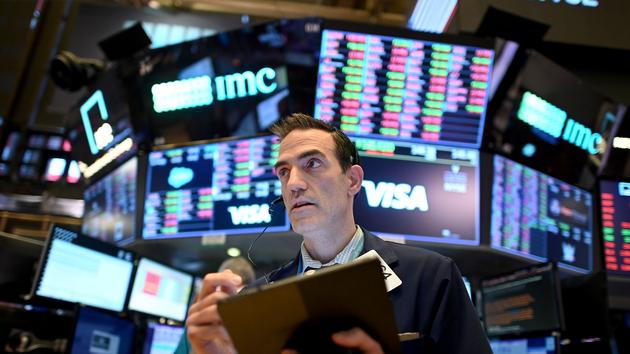Jean-Guillaume de Tocqueville is a partner in the Banking-Finance business line of Gide in Paris.
Catherine Feunteun is a doctor of law and collaborator in the banking-finance business line of Gide in Paris.
We are no exception to the rule: as in every crisis, questions arise about the soundness of the banking system. We hear here and there that Covid-19, among other misdeeds, would affect the solvency of banks to the point of causing bankruptcy risks, as was the case during the financial crisis of 2008. The comparison exercise can be instructive , provided however that it proves to be relevant; which is not the case with the parallel drawn between the health crisis we are going through and the banking and financial crisis of 2008.
The crisis we are going through today is very different in nature from that of 2008.Everyone remembers the domino effect that started on Monday, September 15, 2008, when at one in the morning, Richard Fuld, then president and chief executive officer of the investment bank Lehman Brothers , heard himself confirmed by Henry Paulson, the secretary State Treasury, that the American government had decided not to come to the rescue of this establishment; Lehman's bankruptcy was immediately pronounced, with liabilities declared at $ 613 billion ... The rest is well known: this crisis which struck the heart of the balance sheet of banks, drying up the interbank market, spread from Wall Street on all the world's financial centers, deeply affecting the economy to the point of degenerating into a global economic crisis; a perfect illustration of a systemic crisis, the effects of which felt on the economy more than ten years later are retrospectively estimated at nearly 1,000 billion dollars.
The crisis we are going through today is very different in nature; it is a health crisis, resulting in the confinement of several billion people and the closure of many businesses. Of course, the result is, as in 2008, a risk of major economic paralysis. But the banks are not at the origin of this exogenous shock; on the contrary, they are on the front line to fight the crisis. Their agencies remain open and credits to the economy, in particular to SMEs and households, continue to be granted.
The banks are strong enough to carry out this mission and also face the Covid-19!Rest assured: unlike 2008, the banks are strong enough to carry out this mission and also face the Covid-19! How do you measure this solidity? By an objective regulatory indicator, monitored like milk on the fire by European and French supervisors, which impose on banks a minimum quantity and quality of equity as well as an adequate level of liquidity.
Recall that in 2008, despite unprecedented recovery plans, a large number of banks encountered serious financial difficulties, leading some to be nationalized such as Northern Rock or Fannie Mae . These banks had one thing in common; they had only a small proportion of ordinary shares in their own funds, forcing the States, and therefore the taxpayers, to intervene for lack of a shareholder base sufficient to cover their losses; they also did not have sufficient liquidity reserves.
In response to this crisis, European banks were forced by the new prudential standards of the Union and the euro zone to significantly raise the level of their regulatory capital and, above all, to improve the quality by making more use of their shareholders. . It is now the shareholders who must first and for the most part absorb the unexpected losses of the banks, in particular where businesses and households are no longer in a context of crisis able to meet their deadlines, and who are on the front line in case of difficulties of the establishment. Another development: the banks had to significantly increase the level of their short-term availability.
Following the reforms implemented in response to the 2008 crisis, the French financial sector is now more resilient.These points are central: beyond the massive support measures for the economy taken by the central banks, the States and the European Union, whether in monetary or budgetary matters (suspension of the European Stability Pact) and which help banks to refinance and reduce their risks, the quality of their equity and the level of their liquidity remain the cornerstones of the solidity of institutions. As such, the Governor of the Banque de France, François Villeroy de Galhau, recently confirmed unequivocally that “the major French banks are today in a solid position. If we look at the two main elements of a bank's health, solvency and liquidity, their situation is much more favorable than in 2008. ” In its press release of March 18, the French High Council for Financial Stability also notes that, following the reforms implemented in response to the 2008 crisis, the French financial sector is now more resilient.
The objectivity, and therefore the effectiveness, of these declarations are based in particular on the figures of “stress tests”, carried out by the European Banking Authority (EBA) and by the European Central Bank in 2018 and 2019, which made it possible to test the solidity of banks in the face of a severe European recession.
The bank ratios remain satisfactory for the 48 supervised banks.As part of its supervisory and supervisory assessment process, the EBA regularly organizes these stress-test exercises for all banks in the European Union in order to assess over a period of 3 years their resilience, that is to say their capacity to absorb unexpected losses in the face of very unfavorable macroeconomic and financial shocks. The latest tests have shown that banks' ratios, which measure the level of capital required to face the risk of losses to which they are exposed, including in the event of a severe economic recession accompanied by significant market turbulence , remain satisfactory for the 48 banks controlled.
The ECB noted for the euro area that "the 33 largest banks directly supervised by [it] have improved their resilience to financial shocks in the past two years." This confidence of the Central Bank in European banks has recently resulted in its decision of March 12 to temporarily reduce their capital requirements in order to allow them to devote themselves fully to their core business: granting loans and thus support the economy to better resist the effects of Covid-19.
Let us beware of Cassandre's prophecies about the solidity of our banking system in an already anxiety-provoking context.So let's focus on the basics: protect ourselves from this virus; but let us beware of Cassandre's prophecies on the solidity of our banking system in a context that is already sufficiently anxiety-provoking. Far from being a cause for concern, banks are a determining factor in collective stability and a major asset for economic recovery.








/cloudfront-eu-central-1.images.arcpublishing.com/prisa/C3LDLHDAXBBCFCHWBPELHN64FU.jpg)
